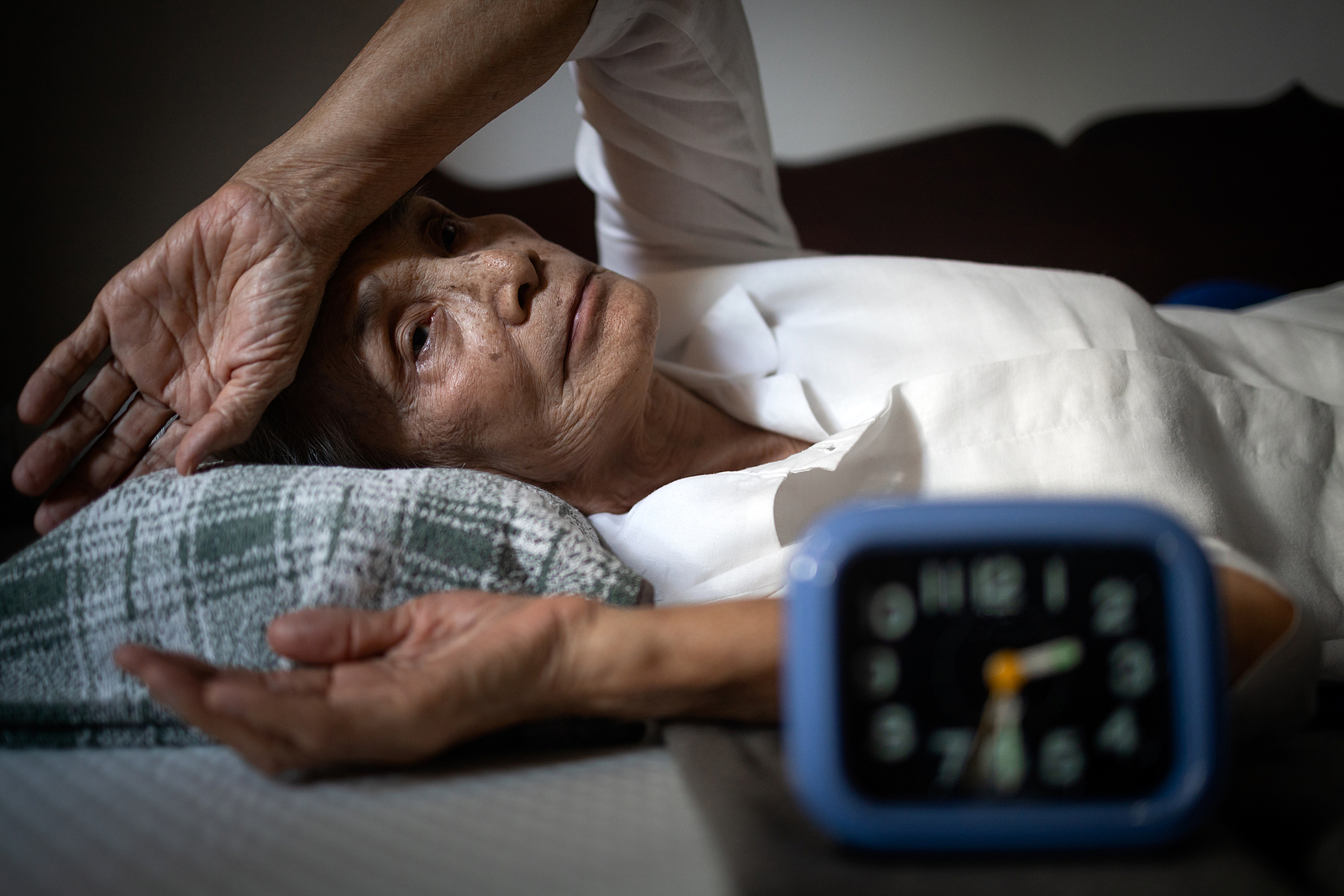Sleep patterns change for all sorts of reasons, including aging and cognitive illnesses like dementia. These changes might include waking up throughout the night, having trouble getting to sleep, or trouble waking up when seniors want. Understanding more about these sleep changes can help seniors with dementia and family caregivers make better choices to support seniors’ needs. Alzheimer’s care providers can also help aging adults with dementia to get better sleep more often.
Common Sleep Issues Related to Aging
Some of the most common issues that seniors experience with sleep include insomnia and changes to how their internal body clocks function. For instance, seniors may find themselves staying up later and later, gradually also getting up later and later. With insomnia, seniors may have trouble falling asleep or trouble slaying asleep. Other issues, like sleep apnea or restless legs syndrome, lead to poor sleep quality even if seniors aren’t battling insomnia.
Causes of Sleep Problems
Sleep is sometimes more fragile than people realize. Side effects from medication can interfere with sleep, but health conditions can also make sleep more difficult. Anxiety, loneliness, or depression can make sleep more difficult to get. Seniors with dementia may find it difficult to stick with their routines or experience issues like sundowning that throw off their sleep habits.
How Does Lack of Sleep Affect Seniors with Dementia?
Poor sleep creates problems for anyone who experiences it, but for seniors with dementia, they’re more likely to have memory trouble and mood dysregulation. Seniors with dementia may experience more confusion if they’re not getting enough sleep. They can also be more resistant to doing the things they need to do, like eat healthier meals or exercise, because of lack of sleep.
Fixing Sleep Problems
Home care providers can offer a lot of help for aging adults with sleep issues. Setting a schedule, especially for seniors with dementia, really helps them to get to bed at a consistent time. Relaxing routines that lead into a consistent bedtime offer cues that remind the brain and body that it’s time to get some rest. If seniors don’t have a comfortable sleep environment, sleep can be tougher to get. Keeping the bedroom dark and cool can help significantly.
Getting Assistance Overnight
Seniors with dementia may still have trouble getting quality sleep, especially if they’re disoriented when they wake up in the middle of the night. Alzheimer’s care providers can offer gentle assistance overnight to help seniors address their needs and safely get back to bed. This overnight help can also help family caregivers continue to get the rest that they need to continue helping the seniors they love.
Sleep issues, related to dementia or to aging, need to be addressed so that seniors can start getting the rest that they need. Alzheimer’s care providers can help families get to the bottom of what’s causing sleep issues for their seniors with dementia and put plans together to help them start to sleep better. When they’re getting the sleep they need, seniors with dementia may find it’s a lot easier to keep their brains active and as healthy as possible.
If you or an aging loved one are considering Alzheimer’s care in Eden Prairie, MN and the surrounding areas, please contact the friendly staff at CareBuilders at Home Minnesota. Call today 612-260-2273.









